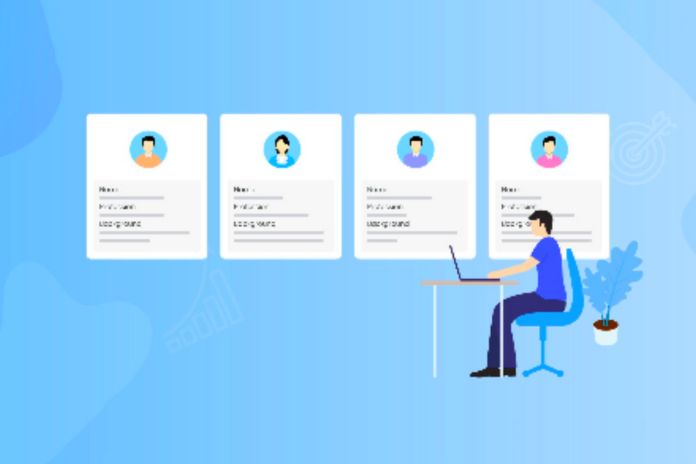What Is The Persona In Digital Marketing?
Do You Know What A Persona Is In Digital Marketing?
Here are some tips for starting the process of composing your persona. When you create your campaign or marketing project, ask yourself who you are talking to. Have you ever stopped to think about who the persona of your Digital Marketing strategy is?
Before starting a conversation with someone, and for the conversation to be interesting, it’s important to know WHO you’re talking to!
To start your Digital Marketing strategy, you need to determine to whom you are selling your product or service. Know your customer’s pain and how your business can help. Remember that the product/service you offer is not for everyone. So it’s essential to find out who he’s for!
How To Describe A Persona?
Imagine explaining the law to a trained lawyer. Anyone who has been through a similar situation like this knows what I’m talking about: you started a conversation and thought you knew everything about a particular subject. However, throughout the conversation, you discover that the person you are talking to knows much more about the subject than you do. Have you been through this?
How Does This Relate To Persona/Avatar?
In your Digital Marketing strategy, you must define who you want to reach with your Digital Marketing actions so as not to talk alone or with those who are not interested in what you are saying.
For this to happen correctly, you need to know your target audience and understand their needs, behaviors, feelings, how they think, where they live, dreams, frustrations, pains…
For example, this post about persona is not for a marketing expert but for people who need to learn or have more knowledge about the subject. Check out seven tips to start the process of composing your persona.
Persona – Ideal Conception
Persona is your client’s ideal concept, humanized and personalized. It is necessary to know who you are talking to, their pain, difficulties, dreams, how they live, experiences etc.
Try to invest time in getting to know your persona so that your Marketing strategy has results and you can sell your product or service to the right person.
Understand Your Customer Profile (Persona)
Understand, understand, know. Conduct interviews throughout the process of designing your ideal persona. Develop the skill of active listening. Pay attention to every word your avatar says.
Throughout the process, you will better understand your customer, and this will help you deliver the best solution to solve your customer’s pain.
Understand Your Customer’s Pain
Understand your customer’s pain. What motivated him to start a conversation with you? And if, by chance, the potential customer has not yet looked for your company’s services, how can you arouse interest in the product/service you are offering? Worry less about selling and more about delivering a solution to your customer’s problem/pain.
Interview Your Persona
Conduct interviews throughout the process of creating your ideal persona. Find out what her expectations are and whether your company is capable of meeting them.
Be Consultative
Be more consultative and less salesman. Show interest in helping your persona. In the desire to make new sales, many forget that there is a person with desires and expectations on the other side.
There is marketing that brings results and marketing that is ineffective. Do you know what the main difference between the two is? Indeed, it is by the direction that the campaigns take.
As pointed out earlier, defining who you will communicate with is necessary. It is essential to know your target audience and understand their particularities, thus establishing who your persona is.
Good personal research will positively transform your marketing picture.
Technology has gained ground in recent decades, facilitating and saving the marketing team’s time. So, why not use technological resources in your mission to establish who your persona is?
Rafael Rez, in his book Content Marketing, mentions some tools that will help in this process:
Google Keyword Planner:
Free Keyword Planner is a tool integrated with Google AdWords. This tool helps you find the words that a particular group is looking for on Google. Another feature is the provision of statistics for each term, including search volume and estimated average cost per click.
Uber-Suggest:
This tool suggests keywords. Über-suggest uses data from Google and other search engines, requiring only that you enter a term, adding a letter or a number in front of it. It does the repetitive keyword search tasks automatically.
Survey Monkey:
This platform allows you to create questionnaires and email them during the survey. A free version includes ten questions per quiz and up to 100 answers for each. Automatically generates graphs and tabs. Questionnaires can be sent via mobile devices, the web, or social media.
Your Search:
A free version of this tool allows you to submit forms with up to 30 responses. It makes cross-referencing of data possible. A basic form template comes ready with sample questions regarding the type of application chosen, and you can change them as needed.
Google Forms:
A Google form that can be customized and sent to respondents. The service benefits those who want to prepare a quick poll, collect email addresses and create more elaborate questionnaires. However, this service only gathers the answers, requiring skill to cross-reference the data.
Among these tools, there are some that we have already mentioned in our texts here on the blog, such as research institutes and social networks. However, these means require more work and make it possible to segment by age, sex, and geographic region.
Also Read: Digital Marketing Checklist: 5 Steps That Can’t Be Missed
Share this content:











Post Comment